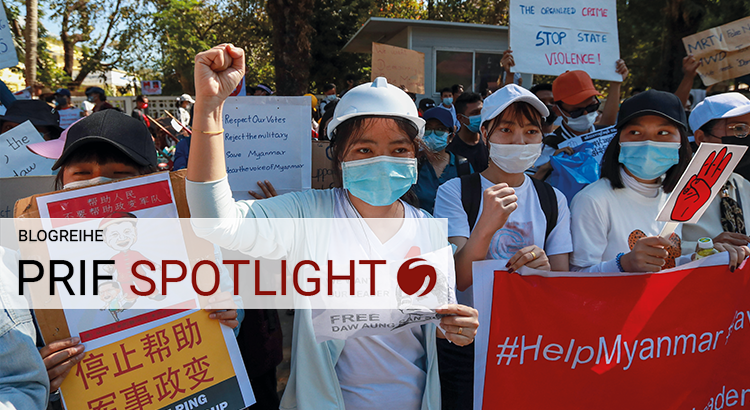
English, PRIF Spotlight15. März 2021 | Pascal Abb, Monalisa Adhikari
China in transitionary Myanmar. Challenging paths to democratization and peace
The recent military coup in Myanmar reversed a decade-long experiment towards incremental political liberalization. At the same time, it also brought China’s engagement there back into the spotlight, and initial Chinese reactions led to suspicions that Beijing had welcomed or even aided the return to military rule. However, the reality of China’s role in Myanmar’s democratic transition and simultaneous peace process is far more complicated, and instructive for its overall engagement in conflict…